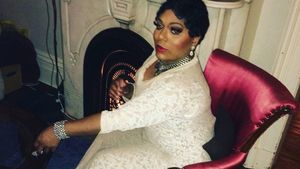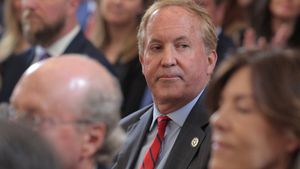Democratic U.S. Sen. Tim Kaine of Virginia and his Republican challenger faced off for a debate in Norfolk on Wednesday that included a Republican attack on LGBTQ+ military members. The Republican candidate, Hung Cao, a retired Navy captain backed by former President Donald Trump, sparked outrage after he criticized diversity, equity, and inclusion efforts in the military and implied thatLGBTQ+ service members are not fit for service.
Cao’s remarks drew swift condemnation from LGBTQ+ advocates and military leaders.
Cao’s comments came during a discussion about the military’s recruitment struggles. He blamed DEI efforts for harming recruitment efforts.
“When you’re using a drag queen to recruit for the Navy, that’s not the people we want,” Cao said. “What we need is alpha males and alpha females who are going to rip out their own guts, eat ’em, and ask for seconds. Those are young men and women that are going to win wars.”
The statement drew backlash for its outdated and discriminatory framing of military service, especially regarding LGBTQ+ troops.
Executive director of the Modern Military Association of America Rachel Branaman condemned Cao’s remarks to The Advocate. “LGBTQ+ Americans have been honorably serving in our armed forces since the birth of our nation, from the father of the Infantry, Baron von Steuben, to Civil War soldier Albert Cashier, to the nearly 100,000 LGBTQ+ troops serving in every capacity across the armed services today. Last night’s comments from Virginia Senate candidate Hung Cao are a disservice to those currently serving, many in harm’s way, and to the over one million LGBTQ+ veterans who have sacrificed life and limb for this country,” she said.
Branaman continued, “The idea that being a ‘good soldier’ and being ‘tough’ is incongruent with being LGBTQ+ is so backwards it would be comical were it not so dangerous. The armed forces are a stronger and more effective force because of our diversity, not in spite of it.”
"LGBTQ+ people have been in the military since its founding, the only difference is that now they can’t be discharged because of it. It’s as simple as that. Disparaging those who seek to bravely serve our country is not an American value," Narissa Rahaman, executive director of Equality Virginia said in a statement.
Kaine, who has long supported LGBTQ+ inclusion in the military, responded directly to Cao’s attack during the debate. Kaine, whose son is a Marine Corps veteran, rejected Cao’s assertion that DEI initiatives were to blame for recruitment challenges. He highlighted broader recruitment issues and the importance of promoting military service to diverse groups.
“I didn’t understand my opponent’s argument,” Kaine said. “He went all around the block, and I’m not really sure what his point was about DEI.” He continued by addressing what he sees as the real issues facing military recruitment: “What we’re finding is it’s hard to get people to serve in the all-volunteer military — only 1 percent serve. Many people don’t even know anyone in the military. We have to reach out to new constituencies and new groups.”
Kaine also stressed the benefits of military service and the need to communicate those advantages to young people better. “The benefits of military service are enormous. People feel like if they serve in the military, they’ll fall behind. No, you’ll zoom ahead because of benefits like the GI Bill and others.”
In a statement to The Advocate on Thursday, Kaine reaffirmed his support for LGBTQ+ service members. “I have fought for the rights of all to serve in the military and have championed the contributions of patriotic LGBTQ troops as a member of the Senate Armed Services Committee. My opponent’s bizarre attack is not representative of the attitudes I find in my daily interactions with our troops,” Kaine said.
Cao’s comments suggested a return to policies that once barred LGBTQ+ individuals from openly serving.
The debate also featured other contentious moments, including Cao’s remarks on immigration, where he claimed the U.S. was spending “a billion dollars a day to house and feed illegal aliens” and called for mass deportations. He also raised eyebrows for perpetuating stereotypes by saying, “There are two truths in the world: never walk into a Target wearing a red shirt, and never go against an Asian on math.”
On reproductive rights, Cao falsely accused Kaine of supporting “unlimited abortion up to including [the] moment of birth,” a common misrepresentation of of-choice positions and something that is not happening. Kaine pushed back, pointing out that his stance aligns with Virginia law, which includes restrictions on late-term abortions.
































































































































